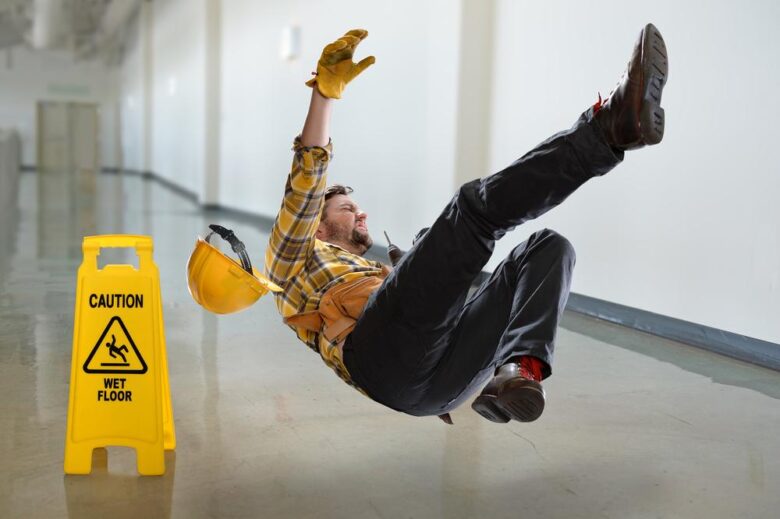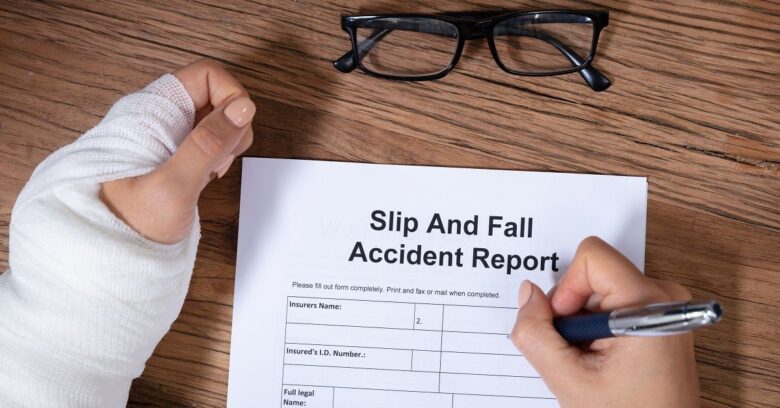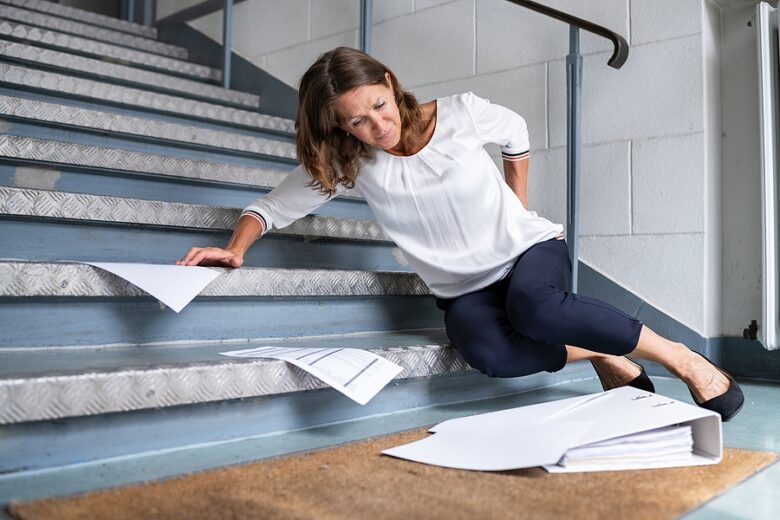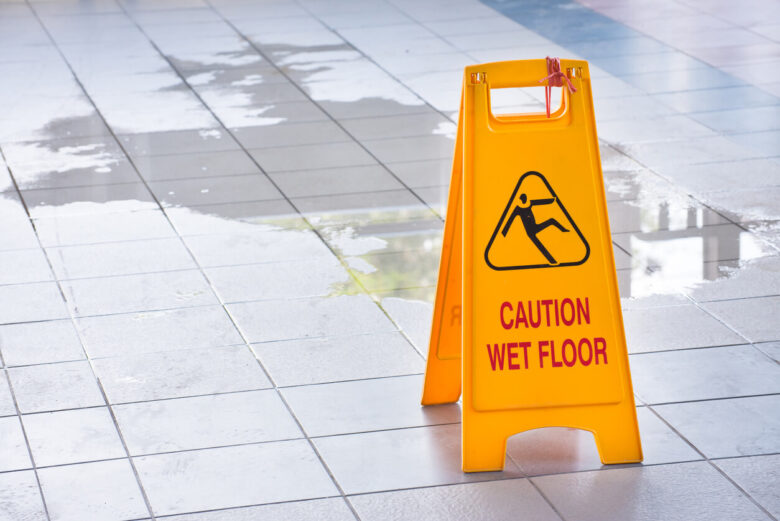Slip and fall accidents can happen anywhere – at home, in a public place, or even at work. It is vital to know the immediate steps one should take after such an incident to ensure their well-being and protect their legal rights. This article will discuss what to do after a slip and fall accident in order to facilitate a smooth recovery and avoid potential complications.
One of the first actions to take following a slip and fall accident is to seek medical attention. Even if the injuries seem minor, a healthcare professional can evaluate the extent of the damage and provide appropriate treatment. Additionally, having medical documentation from a healthcare provider can be beneficial in case any legal matters arise in the future.
It is also important to gather as much evidence as possible regarding the accident. This includes taking photographs of the scene, collecting contact information from witnesses, and reporting the incident to the appropriate authorities or property owners. Proper documentation will be crucial in the event that the injured party chooses to pursue a legal claim against the responsible party.

Source: bressmanlaw.com
Contents
Immediate Actions
Assess Your Injuries
After a slip and fall accident, it’s crucial to quickly assess your injuries. Evaluate whether you can move without causing further harm. If your injuries are severe, avoid moving and ask someone nearby to help you. In case of debilitating pain or inability to move, call for an ambulance or ask someone else to make the call for you.
Report the Incident
Once you have assessed your injuries, report the incident to the property owner, manager, or any relevant authority. You need to inform them about the accident, the location, and the possible cause. This step is essential in building a solid case for a slip and fall claim.
Document Everything
Documenting every detail about the accident can strengthen your case. Here’s a checklist:
- Take photos: Capture clear images of the accident scene, showing the hazard that caused the fall, such as a wet floor or uneven surface.
- Gather contact information: Obtain names and contact details of witnesses who saw the accident.
- Record your account: Write a detailed description of the incident, including what happened, where it happened, and the time of the accident.
- Preserve evidence: Keep any physical evidence, such as torn clothing or damaged personal items.
Seek Medical Attention
Regardless of the perceived severity of your injuries, seek medical attention. A doctor can evaluate your condition, identify any hidden injuries, and suggest appropriate treatment. Additionally, medical documentation serves as evidence for your personal injury case.
By following these steps, you can ensure the proper handling of your slip and fall accident and better position yourself for a potential claim.

Source: venturalaw.com
Legal Considerations
Consult With an Attorney
After a slip and fall accident, it is important to consult with an experienced injury lawyer. They can help you understand your rights, determine if you have a valid case, and guide you through the legal process. It is crucial to select a lawyer who specializes in slip and fall cases, as they will have the necessary expertise to handle your claim effectively.
When meeting with an attorney, bring any available evidence, such as photographs of the accident scene, witness statements, and medical records. This information can help the lawyer assess the strength of your case and advise on the next steps.
Understand Your Rights
In a slip and fall lawsuit, you must demonstrate that the property owner or occupier failed in their duty of care. Their negligence must have caused or contributed to your accident. Establishing this link is vital to securing compensation for your injuries. Here are some key elements to consider:
- Proving negligence: You need to show that the property owner knew or should have known about the hazard and failed to take reasonable steps to remedy the situation.
- Comparative negligence: Some states follow a comparative negligence system for personal injuries. This means that the courts will evaluate the fault of both parties and assign a percentage share. Your compensation will be reduced by the amount you are found responsible for.
- Filing deadlines: Be aware of the deadlines for filing a lawsuit, as each state has different statutes of limitations. Missing a deadline can result in losing your right to pursue a claim.
In conclusion, it is essential to consult with a skilled attorney and understand your rights following a slip and fall accident. They can help you determine if you have a valid case and guide you through the legal process. With their support, you can work towards recovering the compensation you deserve for your injuries.

Source: accidenttampa.com
Follow-Up Steps
Keep Detailed Records
After a slip and fall accident, it’s crucial to keep thorough records of everything related to the incident. This includes documenting any injuries sustained, any property damage, and preserving evidence such as photographs of the accident scene. Additionally, make sure to obtain any witness statements and their contact information.
In situations where communication with the property owner or manager is required, it is advised to keep a written record of any correspondence. Should your case progress to a legal battle, having organized records will make it easier to present your case effectively.
Attend All Medical Appointments
In the aftermath of a slip and fall accident, it is essential to prioritize your health and seek immediate medical attention. Once an initial assessment has been made, follow your doctor’s recommendations and attend all scheduled appointments. This includes appointments with specialists, physical therapists, or any other healthcare providers involved in your recovery.
Not only is attending appointments beneficial for your health, but it also helps to establish the legitimacy of your injury claim. By attending appointments and following the prescribed treatment plan, you are demonstrating that your injuries are serious and require ongoing care.
Here are some tips on staying organized and proactive with medical appointments:
- Write down the dates and times of all scheduled appointments in a calendar or planner.
- Ensure you have reliable transportation to and from appointments.
- Keep a record of all medical expenses, such as prescriptions, invoices, and bills.
- Update your doctor on any progress or new symptoms you experience.

Source: mpjlawfirm.com
By implementing these follow-up steps and maintaining a detailed account of your slip and fall accident, you’ll be better prepared in the event of legal action. Furthermore, prioritizing your health and attending all medical appointments will facilitate a smoother recovery process.
